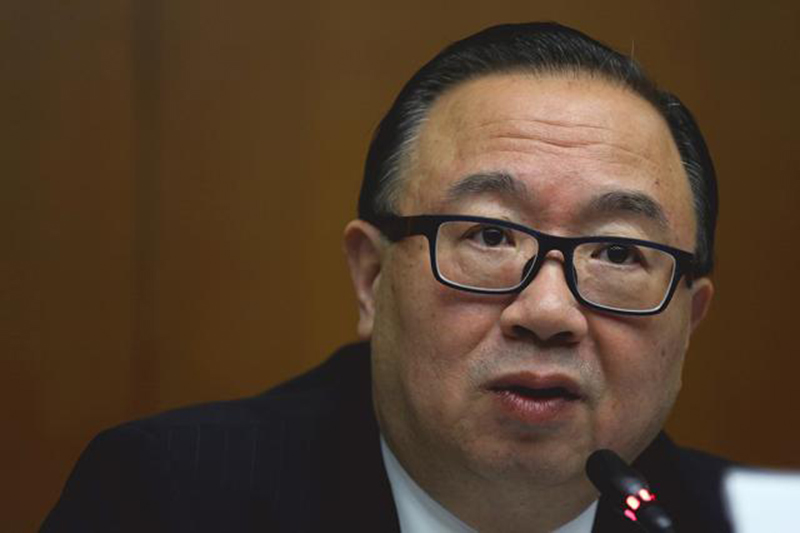Pro-Beijing lawmaker and lawyer Junius Ho Kwan-yiu tried to vote on Monday in favour of a 12 per cent pay rise for politically appointed officials at the Panel on Constitutional Affairs, despite not having the membership of the panel.
Last week, the government proposed raising the salaries of bureau heads by 12.4 per cent starting next July 1. Under the proposal, the chief executive’s monthly salary will jump from HK$371,000 to HK$417,000, keeping Hong Kong’s leader among the world’s best paid bureaucrats.

Pro-democracy lawmakers opposed the pay rise on the basis that many bureau heads have shown unsatisfactory levels of performance. Meanwhile, the pro-establishment camp generally supports the proposal as the salaries of bureau heads have not been adjusted since the political appointment system was introduced 14 years ago.
Commercial (second) sector lawmaker Martin Liao Cheung-kong, who chaired Monday’s meeting, first asked those who opposed the motion to vote by raising their hands. Typically, lawmakers in favour of a motion cast their vote first.
Apple Daily suggested that Liao might have wanted to allow pro-establishment lawmakers to return to the room to cast their votes in time.
Ho was one of the lawmakers who entered the room when the pan-democrats were casting their votes of opposition. He then voted in favour of the proposal alongside other pro-establishment lawmakers.

After counting the votes, the legislature’s clerk questioned Ho’s membership of the panel. The lawmaker responded: “I think I’m probably a member, that’s why I came back to vote.”
Liao asked Ho if he had joined the panel and subsequently left it. Ho replied: “I really don’t remember. There are too many.”
In fact, Ho was not among the lawmakers who quit the panel, nor was he ever a member in the first place. Thus, he was not eligible to vote.
The panel eventually vetoed the motion of submitting the government’s funding request to the legislature’s Finance Committee. However, since the motion is non-binding, the government can still submit the salary adjustment proposal to the committee.
The motion was vetoed by a 16:16 vote. The legislature’s clerk initially reported 14 favourable votes, but later corrected the total vote count. It apologised for the mistake and said it would consider voting electronically whenever practicable.
